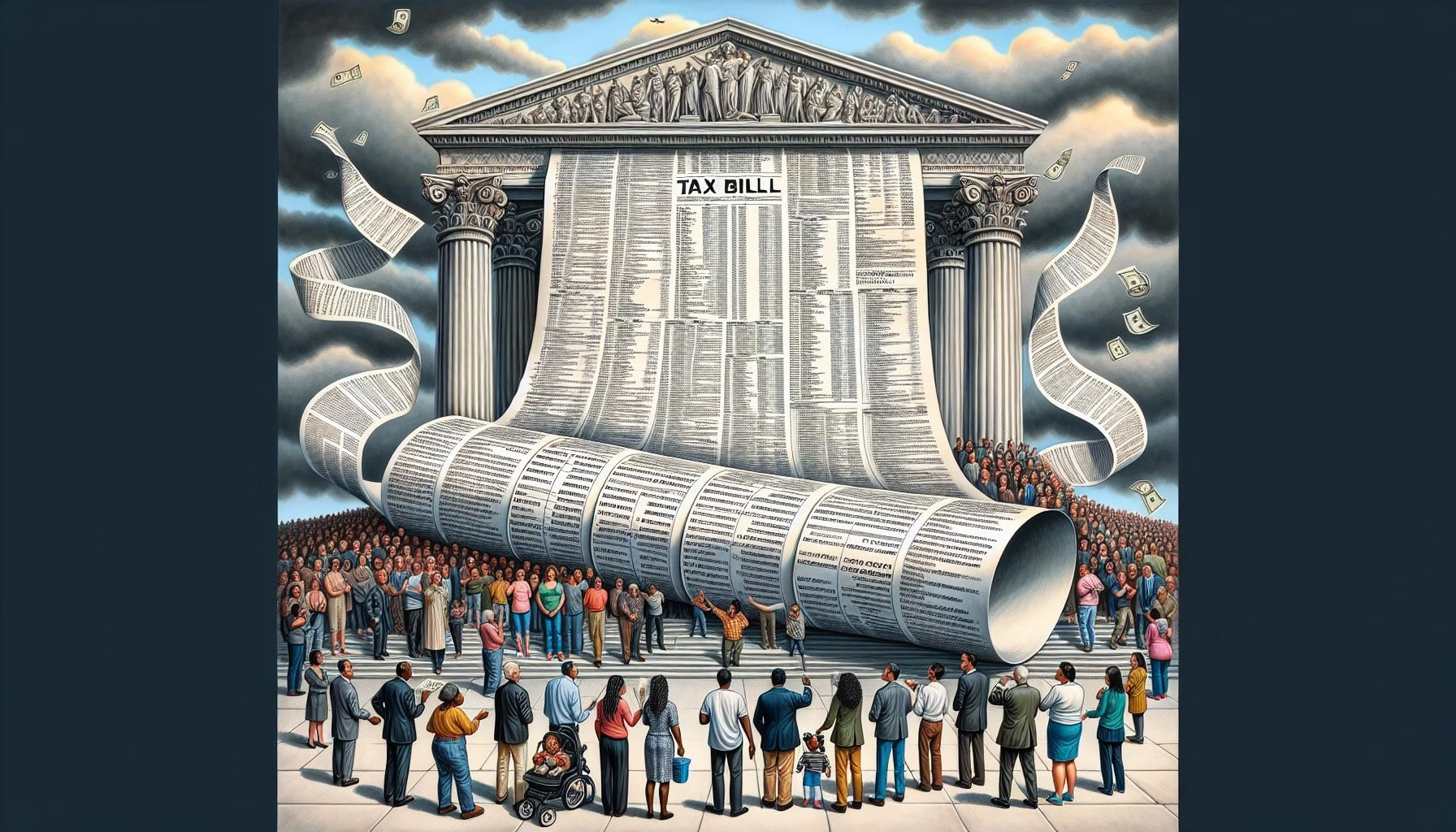If you’ve been paying attention to changes in the tax laws over the past few years, you’ve probably heard about the big tax bill that came into effect not too long ago. While it promised lower taxes and economic stimulation, the reality for many Americans has been a mixed bag—often with more downs than ups. Sure, some folks saw a few extra bucks in their paychecks, but hidden in the details are some surprising ways this bill may be hitting you harder than you think.
Let’s break it down in simple terms so you can understand how this law is affecting your wallet—and what you can possibly do about it.
1. Your State and Local Tax Deductions Got Slashed
One of the biggest shockers for residents of high-tax states is the cap on state and local tax (SALT) deductions. Before the big tax bill, you could deduct all your state and local taxes—including property tax—from your federal tax return. That made a huge difference, especially in places like California, New York, and New Jersey.
But now, there’s a $10,000 cap on these deductions. If you’re a homeowner in a high-tax state, you’re likely feeling that sting. What used to be a helpful cushion has become a financial pinch.
2. You May Be Getting Less Back in Your Tax Refund
Here’s the deal—just because you’re paying less in federal taxes doesn’t mean you’ll get a bigger refund. In fact, many people ended up surprised, frustrated, or even panicked when their tax refunds were noticeably smaller after the bill went into effect.
Why the change? The IRS updated withholding guidelines, so while your paycheck may be slightly bigger throughout the year, your refund at tax time could shrink. For some, that refund felt like a mini savings account, and losing that lump sum hit hard.
3. Unreimbursed Employee Expenses? Say Goodbye!
If you’re an employee who spends money out of pocket for work—say for uniforms, tools, or travel—that used to be deductible. But under the new law? Not anymore.
This is especially tough on middle-class professionals like teachers, salespeople, and nurses who often pay for work-related expenses that employers won’t cover. It can feel like you’re being punished for doing your job well.
4. Moving for Work? Sorry, That’s Not Deductible Either
Before the law changed, if you had to relocate for a new job and met certain conditions, you could deduct your moving expenses. That helped ease the financial burden of uprooting your life for work opportunities.
But now? Moving expense deductions are gone—unless you’re in the military. So, if your career forces you to pack up and move cross-country, you’re on your own when it comes to those costs.
5. Alimony Payments Got Weird—Fast
Divorces are tough enough as it is. But under the big tax bill, the way alimony payments are taxed has completely flipped.
If you’re divorced after 2018, alimony is no longer tax-deductible for the payer. On top of that, the person receiving alimony no longer has to pay taxes on it. This reversal may seem helpful to the recipient, but it often means the paying spouse is less willing (or able) to agree to higher payments during divorce negotiations. And that creates tension—and financial headaches—on both ends.
6. Homeowners Are Losing Out
If you recently bought a home, thinking you’d make up for those mortgage payments with big tax breaks… think again. The big tax bill lowered the mortgage interest deduction cap from $1 million to $750,000.
Add to that the SALT deduction cap we talked about earlier, and the once-sizeable perks of homeownership are starting to erode—especially in markets where homes cost big bucks.
7. Big Benefits for Big Business—Not So Much for You
One promise of the tax legislation was that slashing corporate tax rates would spur job growth, raise wages, and boost the economy. But what’s really happened?
Large corporations got huge tax cuts, but most of the benefits seem to have gone toward buying back stocks or increasing dividends—not employee wages or hiring. That means many regular workers haven’t seen the boost they were told to expect.
And while big companies thrive, middle-class families have seen limited trickle-down benefits. It feels a little like watching your neighbors throw a party… and not getting an invite.
How Can You Protect Yourself Financially?
While we can’t turn back the legislative clock, there are steps you can take to soften the blow of these new policies:
- Reevaluate your tax withholding. Adjust it so you’re not surprised come April.
- Look for deductions elsewhere. While some old deductions are gone, others may apply—especially if you’re self-employed.
- Talk to a tax advisor. With rules changing, it’s worth chatting with a professional to find the best strategy for your situation.
- Consider itemizing. Even though it’s less common now, in some cases it may still make sense financially.
What’s Next for Tax Policy?
Many of these individual tax cuts are set to expire in 2025. Unless Congress acts, we could see a reversal or further changes in rates and deductions. Stay informed, and speak up if you believe tax policy should better reflect the needs of average Americans.
Being proactive is key—each tax year offers an opportunity to make adjustments and plan smarter.
Final Thoughts
The big tax bill promised a lot, but for many Americans, the reality hasn’t lived up to the hype. It’s not just about what you see in your paycheck—it’s about how much you get to keep come tax season, and what deductions or benefits have quietly disappeared.
Staying informed can help you minimize the impact and make the most of your money. Take the time to understand the rules and customize your tax strategy accordingly. Your wallet—and your peace of mind—will thank you.
To get the full scoop and original article, check out this Investopedia analysis here.
Want to learn more about smart financial planning or budgeting? Check out our guide on how to create a budget that actually works and start taking control of your money today.

